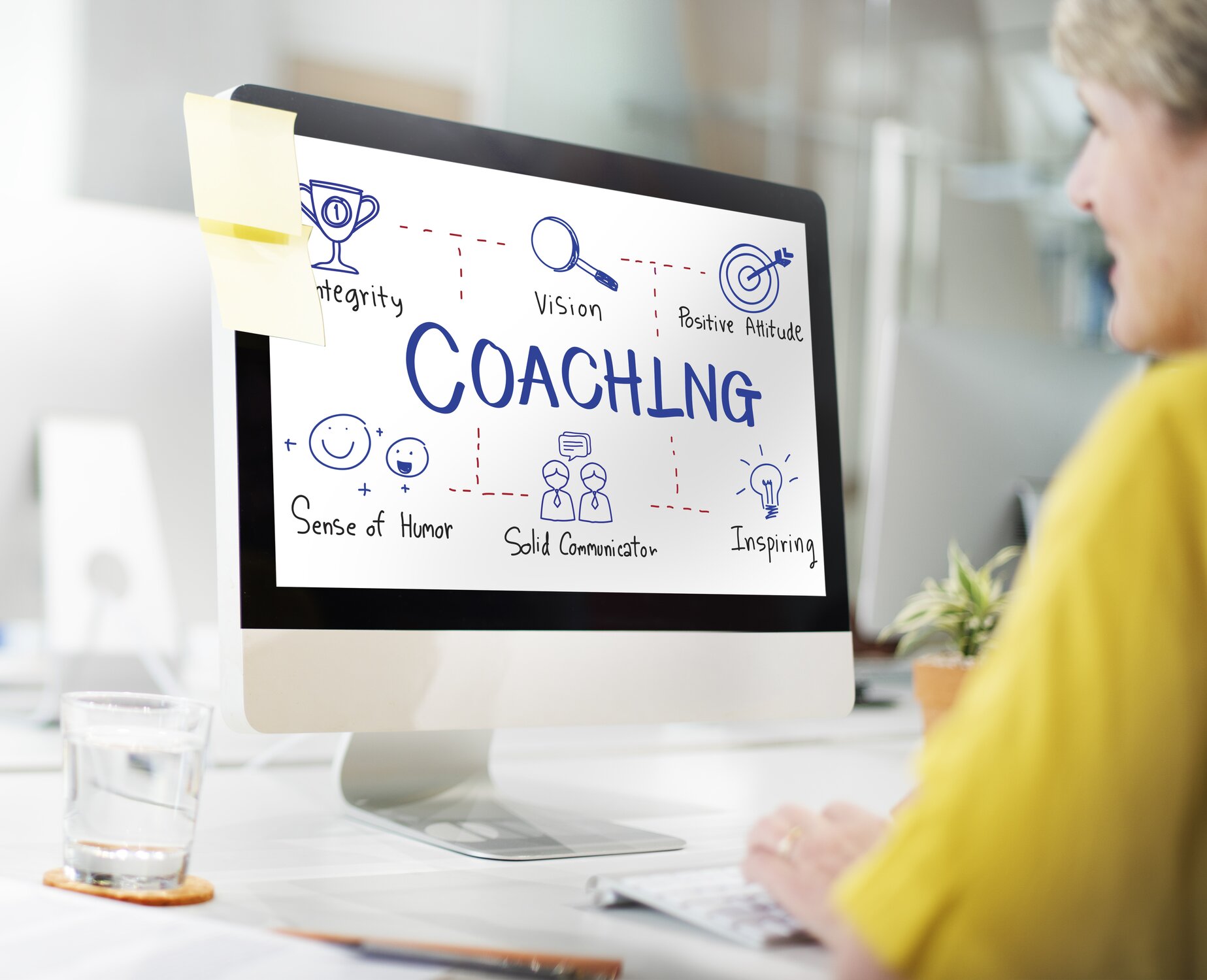In today’s fast-paced world, people are constantly searching for ways to become more organized, productive, and mentally focused. Over the last ten years, demand for executive function coaching has risen by nearly 40%, reflecting how essential these skills have become for success in education, business, and everyday life.
An Executive Functioning Coach plays a critical role in helping individuals strengthen their cognitive and behavioral skills, manage their time effectively, and build systems that support personal growth and professional excellence.
This article explores how to become a Certified Executive Functioning Coach, outlining the skills, certifications, and strategies you’ll need to build a rewarding career in this expanding profession.
Who is an Executive Functioning Coach?
An Executive Functioning Coach guides clients in developing essential mental processes such as organization, planning, emotional control, focus, and goal-setting.
You might work with:
- Students who struggle to balance academic responsibilities and extracurricular activities
- Adults with ADHD seeking productivity systems that work for their brains
- Professionals who need structure to manage complex projects or leadership tasks
Through customized strategies and ongoing accountability, you help clients take control of their time, tasks, and mindset.
If you’re already exploring executive coaching, executive functioning coaching can be an excellent extension of your practice — blending cognitive development with productivity and emotional intelligence.
Why Executive Functioning Skills Matter
Executive functions are the “control center” of the brain — the mental tools that enable planning, prioritizing, self-monitoring, and flexible thinking.
Without strong executive functioning, even the most talented individuals can struggle to meet deadlines, regulate emotions, or maintain balance in their lives.
As an Executive Functioning Coach, you help clients:
- Identify cognitive strengths and challenges
- Build practical systems for focus and organization
- Increase resilience, motivation, and consistency
With the growing awareness of ADHD and neurodiversity, executive function coaching has evolved into a sought-after service — one that helps clients not just survive but thrive in modern life.

Top Executive Function Coach Certification Programs
Choosing the right certification is the first big step in your journey. Here are some of the most recognized programs that blend academic insight with hands-on coaching experience:
1. The Executive Function Coaching Academy (EFCA)
The EFCA offers one of the most complete executive function coaching certifications, combining evidence-based techniques with business development strategies.
Key Features:
- Comprehensive training that covers both coaching and business setup
- Lifetime access to a global EF coach directory
- An active community of peers and mentors who share tools and feedback
Graduate Feedback:
“This course exceeded my expectations — it’s practical, supportive, and incredibly empowering.” – Jen Coleman
“The support and encouragement I received gave me the confidence to launch my own coaching business.” – Jaymee
2. Connections in Mind
An excellent program for beginners that emphasizes foundational coaching principles and practical application in real-world contexts.
3. JST Coaching & Training
Focused on clients with ADHD, JST’s courses integrate neuroscience and coaching to help learners create effective, personalized systems.
4. University-Based Learning Specialist Programs
Offered through several academic institutions, these programs train professionals to support students with disabilities and learning challenges.
5. PESI
Known for its continuing education offerings, PESI provides workshops and courses that focus on executive function, emotional regulation, and cognitive development.
6. Seth Perler’s Programs
Seth Perler’s interactive workshops and online courses teach innovative, hands-on strategies for students and professionals struggling with executive function issues.
How to Become a Certified Executive Functioning Coach
Building a coaching career takes commitment, self-awareness, and structured learning. Here’s a step-by-step overview:
1. Recognize the Value of Certification
While certification isn’t legally required, earning one from a respected organization increases your credibility and demonstrates professionalism. The International Coaching Federation (ICF) and similar associations offer specialized executive and leadership coaching credentials.
2. Cultivate Core Skills
Successful EF coaches excel at communication, empathy, problem-solving, and active listening. You’ll also need a strong understanding of how executive functions work and how to adapt strategies to different learning or thinking styles.
3. Meet Educational and Background Requirements
Most certification programs recommend a background in education, psychology, or related fields — though some now offer micro-credential programs for newcomers or specialists in time management, focus, or motivation.
4. Complete Certification Requirements
Expect to complete coursework, coaching hours, supervised practice, and examinations.
For example:
- ICF Certification offers flexible hybrid formats for remote learners.
- JST Coaching includes mentorship and real-world case practice.
5. Build Connections and Experience
Join online forums, attend virtual summits, and connect with industry peers. Offering free or discounted coaching sessions can help you gain confidence and testimonials early on.
How to Choose the Best Certification Program
Your certification program should reflect your vision, budget, and ideal clientele. Consider the following:
- Define your career focus: Are you more interested in helping students, entrepreneurs, or adults with ADHD?
- Review costs and formats: Compare program prices and time commitments. Many schools offer online or self-paced options.
- Verify accreditation: Look for ICF, CCE, or university-affiliated credentials.
- Seek specialization: Programs offering niche tracks in neurodiversity, leadership, or education can enhance your career flexibility.
For a broader understanding of how executive coaching can be applied across industries, explore executive coaching models used by top leaders.
Building Your Career as an Executive Functioning Coach
Once you’ve earned your certification, it’s time to create a strong foundation for your practice.
1. Establish Your Coaching Business
Define your coaching packages, pricing, and target market. Create a professional website, share testimonials, and showcase your unique approach.
2. Attract and Retain Clients
Engage with potential clients through blogs, webinars, or social media. Write about productivity, focus, and mindset — topics that resonate with individuals seeking executive function support.
3. Continue Your Professional Growth
Stay current with trends in neuroscience, coaching psychology, and behavioral research. Attend professional development events and seek supervision or mentorship to refine your skills.
4. Experiment with Coaching Formats
From one-on-one sessions to group or online programs, explore diverse methods to meet client needs. Many coaches now incorporate technology or gamified tools to improve engagement and progress tracking.
You can also become a DreamCoachMatch coach to connect with clients actively searching for executive and mindset coaching support.
Resources and Professional Networks
To sustain growth and stay inspired, surround yourself with continuous learning and a strong professional network.
- Join associations: Organizations like ICF or the ADHD Coaches Organization offer networking and credentialing opportunities.
- Engage in online communities: Participate in Facebook and LinkedIn groups for executive coaches.
- Subscribe to research and publications: Read neuroscience, psychology, and productivity journals to stay informed on new methods and discoveries.
By engaging with these resources, you’ll continue evolving — both as a coach and as a lifelong learner.
Final Thoughts
Becoming a Certified Executive Functioning Coach is more than earning a credential — it’s about helping others lead organized, confident, and empowered lives.
Your certification validates your expertise, but your compassion, creativity, and commitment will define your impact. Whether you work with students, professionals, or entrepreneurs, your guidance can transform how people think, plan, and act.
Take the leap into this meaningful profession today — explore certification options, connect with your community, and start your journey into the world of executive coaching.
Your next client’s breakthrough begins with you.






